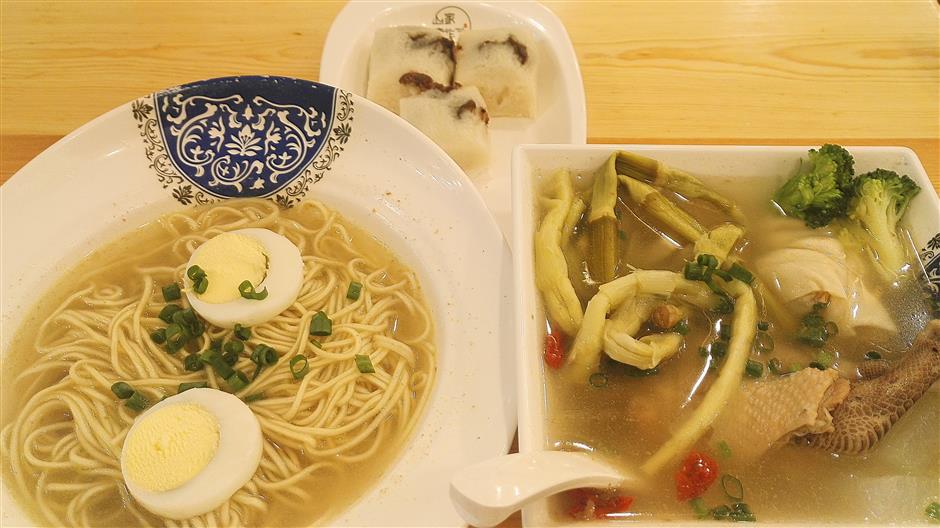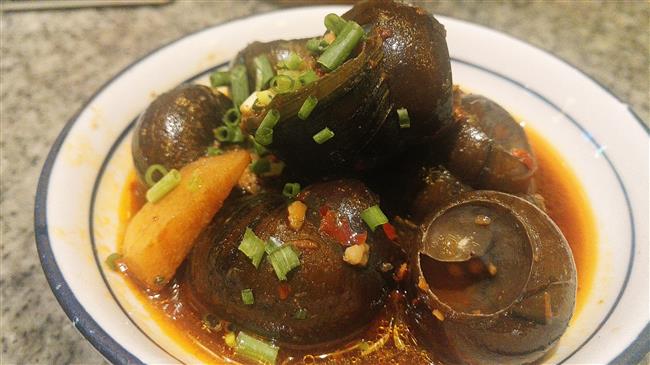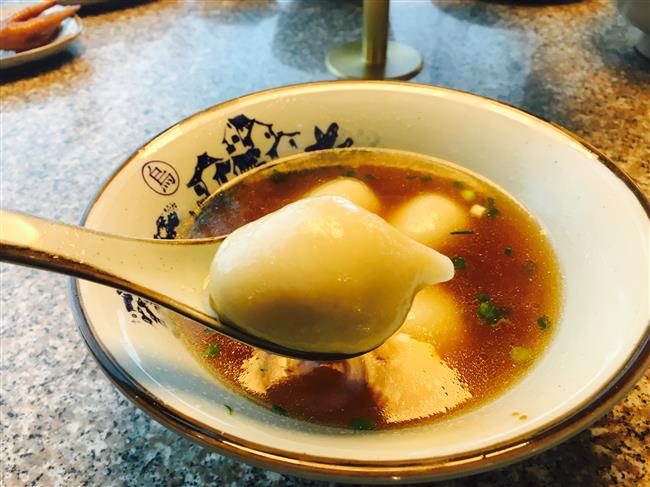Restaurants bring back the lost flavors from home
It is no exaggeration to say that Chinese people live on their taste buds. Wherever they go, they carry the taste of their home food with them. People from Sichuan Province are always looking for something spicy; those from Shaanxi keep an eye out for noodles.
Urbanization in China led to the demolition of many old residences. The concept of a “physical” home town has become ambiguous than ever before. But the way how people eat has not changed.
A recent report by China National Radio is an example. A man in Fujian Province discovered by chance his fondness for spicy food, but none of his family had any such preference. Out of curiosity he registered on a website looking for abducted children.
It turned out that he was kidnapped from Sichuan Province when he was 6.
The bond between relations also weakened. People from the same clan rarely stay together now as they did for thousands of years. They recognize each other by dialects and tastes.
In a way, Chinese people eat to express their identities and their nostalgic feelings for homes that could only be traced from local delights.
The best way to comfort a person drifting away from home may be to take him/her to an authentic restaurant serving hometown delicacies.
In Hangzhou, such restaurants have emerged in recent years that aim to promote local food culture. We take a look at some of them.

Duck meat noodles and tea cakes
Shan Jia Qing Zuo (Deqing County delicacies)
Shan Jia Qing Zuo is essentially a noodle shop. The types of noodles they serve is believed to have originated from Xinshi Town, Deqing County, 30 kilometers northeast of Hangzhou. It is a watertown on the Grand Canal with a history of more than 1,700 years.
Local people love to take a square-shaped rice cake when they have their morning tea. That’s why it is named chagao (茶糕), or tea cake.
But there is no tea in the cake. It is made from glutinous rice flour mixed with rice flour in a ratio of 7:3. The restaurant offers two kinds of stuffing, pork or red bean paste.
The red bean paste seems to be home made and does not have the artificial sweetened flavor like in other desserts.
The main dish is the duck meet noodles. The plain noodles sprinkled with spring onions are served separately from the duck soup.
The soup is actually a duck combo, which includes a duck leg tied with the duck’s feet, duck’s gizzard and other flavor-adding vegetables like white gourd, dried bamboo shoots and goji berries.
“We don’t use any artificial flavor enhancer,” the owner of the shop said.
One more thing you can’t miss in the soup is qianzhangbao — steamed spring rolls that are usually served in bundles of four. The dim sum was invented by people of Huzhou city, under which Deqing falls.
Other specialties such as the lamb noodles is only served from October when it gets cooler.
Address: 115 Xinhua Rd

Sea snail stuffed with pork
Gu Pu Liang Shi (Quzhou delicacies)
Many people’s impression of Quzhou cuisine is spicy, super spicy.
A Quzhou native reckons the city has more to offer in terms of culinary art. Zhang Yufei is the owner of the restaurant in Hangzhou that brought more than 40 types of Quzhou traditional snacks in 2016.
But it was not just food that he brought but also experienced chefs.
The wonton of the Qing Dynasty (1644-1911) is made by a chef whose family has been making it for five generations. The wrappers are handmade and it takes two hours to roll out a wrapper as thin as a piece of paper.
A lot of food here is associated with local folk customs and lost traditions. Tangyuan in Longyou County for example is only served on Kitchen God’s Day or when a very important guest comes to visit.
And on Chinese Ghost Festival (15th night of the seventh month on lunar calendar), people in Kaihua County eat a special kind of steamed rice cake — qigao (汽糕) — to pray for the deceased and keep away from evil spirits.
The cake is made from fermented rice flour and added with toppings like dried tofu, dried bamboo shoots, shredded daikon radish. Some locals believe it is the precursor of pizza in the east. Another impressive dish is “sea snail stuffed with pork.” They take out the body of the snail and mingle it with minced pork marinated in cooking wine, ginger and local chili. Don’t forget to take a sip of the remaining soup inside the snail when you finish the meat.
It is a little bit too spicy for a Hangzhou native but you just can’t help yourself trying it.
Address: 48-5 Xueshi Rd

Tofu tangyuan
Li Yu and His Liangtouwu (Lanxi County delicacies)
The restaurant’s name comes from two calling cards of Lanxi, a county-level city near Jinhua. One is Li Yu (1611-80), a Chinese playwright, novelist and gastronome native of Lanxi. Another is Liangtouwu pig, a local breed known for its quality taste and long breeding cycle.
The restaurant serves Lanxi local specialties with Liangtouwu pork, such as dumplings and rice dumplings stuffed with the pork.
A must-try is Ji Zi Guo (鸡子粿), a local snack that is now listed in the city’s intangible culture heritage.
Spring onions and minced pork are wrapped in dough made with 38 pleats. Seasoned beaten egg is added to the bun when it is pan-fried. The bun is then flattened and fried from both sides.
The flatbread is served hot. The steamed eggs mixed with the refreshing scent of spring onions balances the greasiness of the crispy skin.
It is a great breakfast companion for congee.
There are also a range of tofu stuffed staple food. The tofu tangyuan (glutinous rice balls) looks like a thin fluffy onion head with fillings of firm tofu, minced pork and red peppers.
Other recommended dishes are Lanxi beef noodles and a special kind of Chinese jelly made of sweet potato starch.
It is served with freshly sliced dragon fruit, kiwi fruit and iced milk that acts as a digestive aid if you order too much spicy food from the menu.
Address: 416 Fengqi Rd

Chinese jelly with fruits and milk
















